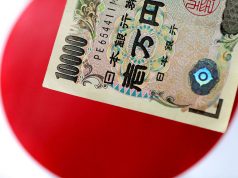The expected monster listing of Ant Financial which was derailed by China regulators represents a glimpse of the transformation happening in the finance world. It showed the positive and negative aspects of the fintech disruption. The application of technology to financial markets or fintech is changing finance practice all over the world. Fintech offers big gains in efficiency. And it is replete with risks.
Let’s first review the changes that are happening around us. Digital banking technologies are now observable in deposits, payment systems, wallets, lending, investing, currencies, insurance, etc. The pandemic has contributed to the surge by forcing more people to bank and pay online. The shift from physical to digital payments is the new normal.
One of the important functions of the financial system is the clearing and settling of payments. Cheque accounts and credit cards used to account for 98% of transactions for payments of goods and services, and financial assets. The shift from physical to digital payments have been remarkable. According to The Economist, the share of cashless transactions worldwide has accelerated due to the Covid-19. In America mobile banking traffic rose by 85% and online banking registrations by 200% in April 2020 alone.
In Sweden, cash transactions make up 2% of the value of all payments. You can’t use cash for retail transactions and for public transportation. Most banks don’t even have ATMs. The preferred mode of exchange is using a card or a mobile phone app to transfer money in real time. China boasts of a digital payment system using QR codes in your phone. Even beggars in the street don’t accept cash anymore and you give your donation through their mobile phones.
Online shopping has leapt forward by several years partly due to the pandemic. Even brick and mortar stores have been forced to adapt and reach customers who are locked down or hesitant to leave their homes. Visa and Mastercard reported a 40% surge in the first quarter of 2020. Consumers are utilizing peer-to-peer services to send money to relatives. These same customers who were unfamiliar with digital payments before COVID-19 are expected to be long time adoptors to this new system.
In lending, the phenomenon is the same. The Economist reports the following: (1) DBS of Singapore opened 40,000 accounts for migrants in April 2020, (2) Brazil used the mobile route to reach its citizens in the Amazon, and (3) a Kenya bank doubled its customers using its app. Peer-to-peer lending platforms directly link individuals willing to lend money to borrowers. In the US, a typical platform application reviews a potential borrower, assigns a credit score to that borrower and make the information available to potential investors. The traditional bank lenders are often excluded from the system.
New business models find nontraditional business networks with enough customers vying to become a new form of financial intermediary displacing the banks. E-commerce sites, fintechs, social networks, transportation providers, food delivery services and the like serve the virtual banking needs of both buyers and sellers. In the Philippines, for example, Shopee, Lazada and Grab offer virtual wallets where consumers are encouraged to deposit their money for future consumption
Artificial intelligence and machine learning are being used to provide information on consumer behavior and develop real-time investment insights. By exploiting data on users’ behavior, firms can use complex algorithms to understand consumer wants and needs. Similar methods are used to detect fraudulent activities, take actions against cybercrime and improve regulatory compliance.
Millennials are using technology to invest in shares and bonds directly with the use of electronic trading platforms that make it easier and cheaper to buy and sell securities directly. Providing investment advice to individuals and tailoring portfolio to their needs can now be done through robo advisers. These platforms automate the investment process by securing the individual’s personal situation and risk tolerance profiles. It will recommend a portfolio, usually assets across low-cost index funds, for a fee. Once investors place their money, the robo advisers purchase the investments and will periodically rebalance the portfolio to maintain an ideal asset mix.
Investment crowdfunding is making raising capital more democratic. New infrastructure allows early and growth stage companies to invite individual retail investors to invest in projects they may be passionate about. Aside from equity crowdfunding where investors own shares of the new company in proportion to their investment, there are also crowdfunded debt financing. Here, the investors become creditors and receive interest payments.
Blockchain solutions are now being explored to lower cost of trading, transfer ownership and create more accurate records. A blockchain consists of a network of computers that simultaneously update a ledger of transactions or other data. The technology offers advances in speed and security of financial record-keeping. It has become well recognized in the creation of cyber currency like bitcoin.
The digital revolution is changing financial transactions and its players in a big way. We see major improvements in efficiency but there are attendant risks at it destabilizes the financial system. Already, cybercrime is rising. The role of banks and regular intermediaries in maturity matching is off balance. Regulators are sometimes caught unawares and how it responds can either be positive and dysfunctional.
The challenges are expected and must be overcome. But there is no stopping this digital onslaught that has been put to high gear by the worldwide pandemic. Players in the sector will either adapt or be found obsolete.
Benel D. Lagua was former Executive Vice President and Chief Development Officer at the Development Bank of the Philippines. He is an active FINEX member and a long-time advocate of risk-based lending for SMEs. The views expressed herein are his own and does not necessarily reflect the opinion of his office as well as FINEX.



